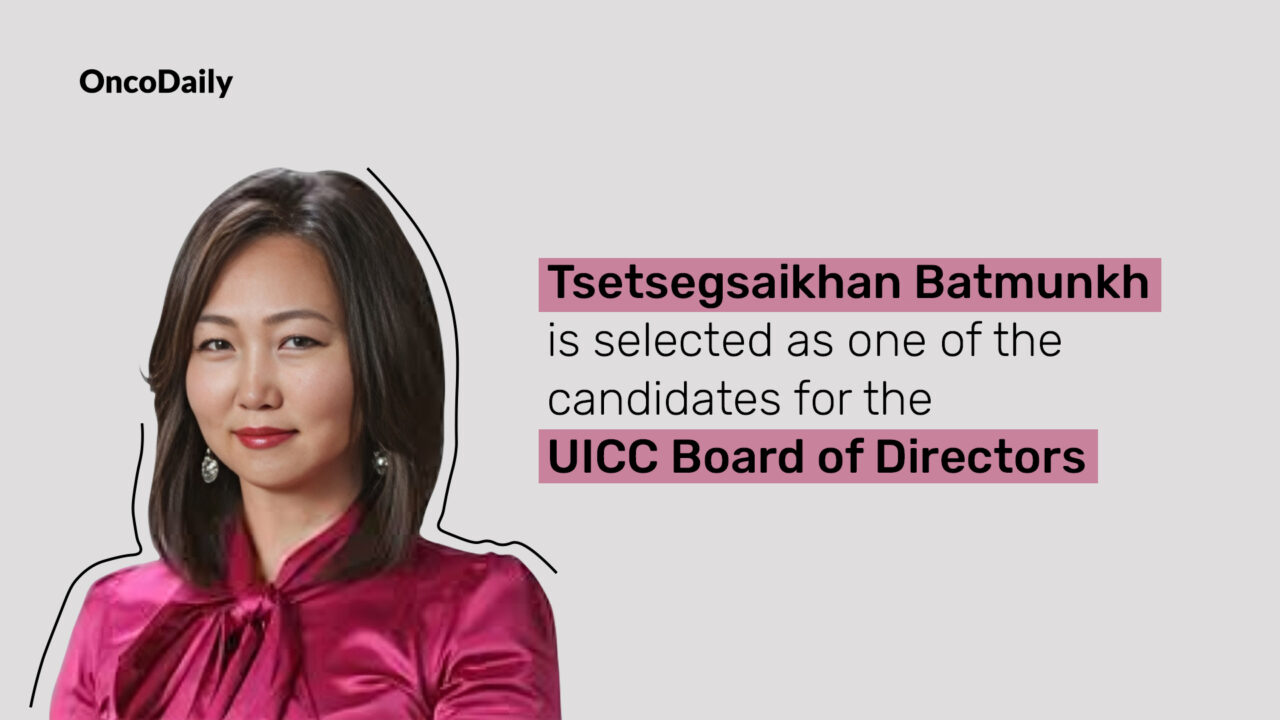In this interview with OncoDaily, Tsetsegsaikhan Batmunkh, Founder of the National Cancer Council of Mongolia, discusses her work in cancer prevention and advocacy. She highlights Mongolia’s high cancer rates and the Council’s efforts to improve care through global partnerships and public health initiatives, including HPV vaccination and access to oncology medicines.
Could you please introduce yourself?
I graduated from the Peoples Friendship University of Russia as a medical doctor and obtained a Master’s degree in Public Health and Health Management from the University of New South Wales in Australia. I also completed my PhD in Medicine at the Peoples Friendship University of Russia.
My career began as a doctor at a rural hospital near the border with China, and I have worked with various government and international organizations, including the Ministry of Health, the Specialized Inspection Agency, and the World Health Organization.
I have held leadership roles, such as Advisor to the Health Minister and Director of the Government Regulatory Agency for Medicines and Medical Devices. In 2014, I founded the National Cancer Council of Mongolia, an NGO focused on cancer control.
What is the situation of cancer in Mongolia?
Cancer is the second-leading cause of mortality in our country, with prevalence and mortality rates significantly higher than the global average. The most common types of cancer here include liver, stomach, lung, cervical, and esophageal cancers.
Many of these cancers are preventable through public health interventions, education, vaccination, and early screening. Unfortunately, two-thirds of cancers are diagnosed at a late stage, which contributes to low survival rates.
What approach did the National Cancer Council take?
The National Cancer Council was established in 2014 and focuses on patient support services as well as cancer prevention through research and advocacy. Over the past five years, we have provided “home away from home” services, accommodating over 5,000 patients and caregivers from rural provinces. We also offer transportation services, psychosocial support, and educational materials for cancer patients.
Our main focus areas are cervical, childhood cancer and access to oncology medicines. In the childhood cancer space, we have advocated for prioritizing childhood cancer and the approval of relevant policy documents. Mongolia has become a pilot country for implementing the WHO and St. Jude Children’s Research Hospital’s Global Childhood Cancer Initiative and Global Platform for Access to Childhood Cancer Medicines.
Currently, the Cancer Council is working to establish a rehabilitation camp for children with cancer in one of Mongolia’s provinces. All these efforts aim to improve survival rates for children with cancer to over 60%.
Mongolia has the highest rate of cervical cancer in the world and is far from meeting global goals for its elimination. We initiated a pilot HPV vaccination program in 2012, which was halted due to significant community resistance linked to concerns about infertility.
In response, we conducted extensive research on the effectiveness of the HPV vaccine to provide evidence for policy change. We then focused on advocacy among various stakeholders to reintroduce the HPV vaccine. After a decade of effort, the government has decided to include the HPV vaccine in the childhood immunization schedule and to implement a single-dose, gender-neutral schedule for 11-year-old adolescents. Nationwide vaccination is set to roll out in November of this year. Our main advocacy focus is now shifting to HPV testing for cervical cancer screening.
As the quality of oncology medicines is a critical factor impacting treatment outcomes, we have collaborated with the Union for International Cancer Control’s flagship ATOM initiative to improve access to essential oncology medicines. We are honored that Mongolia is the first country to implement the ATOM initiative.
Currently, we are conducting a situational analysis to identify areas for improvement, gaps in capacity building, and strategies for organizing pooled procurement of the medicines listed in the essential medicines list. We hope that the ATOM initiative will enhance the access and availability of quality-assured cancer medicines, which can serve as a model for other low- and middle-income countries, ultimately saving thousands of lives.
Dr. Tsetsegsaikhan Batmunkh is a medical doctor and microbiologist. She is the CEO of the National Cancer Council of Mongolia, where she leads efforts in cancer control, including prevention, diagnosis, treatment, and research. Her work focuses on improving cancer care quality and promoting health equity in Mongolia. She is recognized for her contributions to national and global cancer control initiatives.
Other posts featuring Tsetsegsaikhan Batmunkh.


